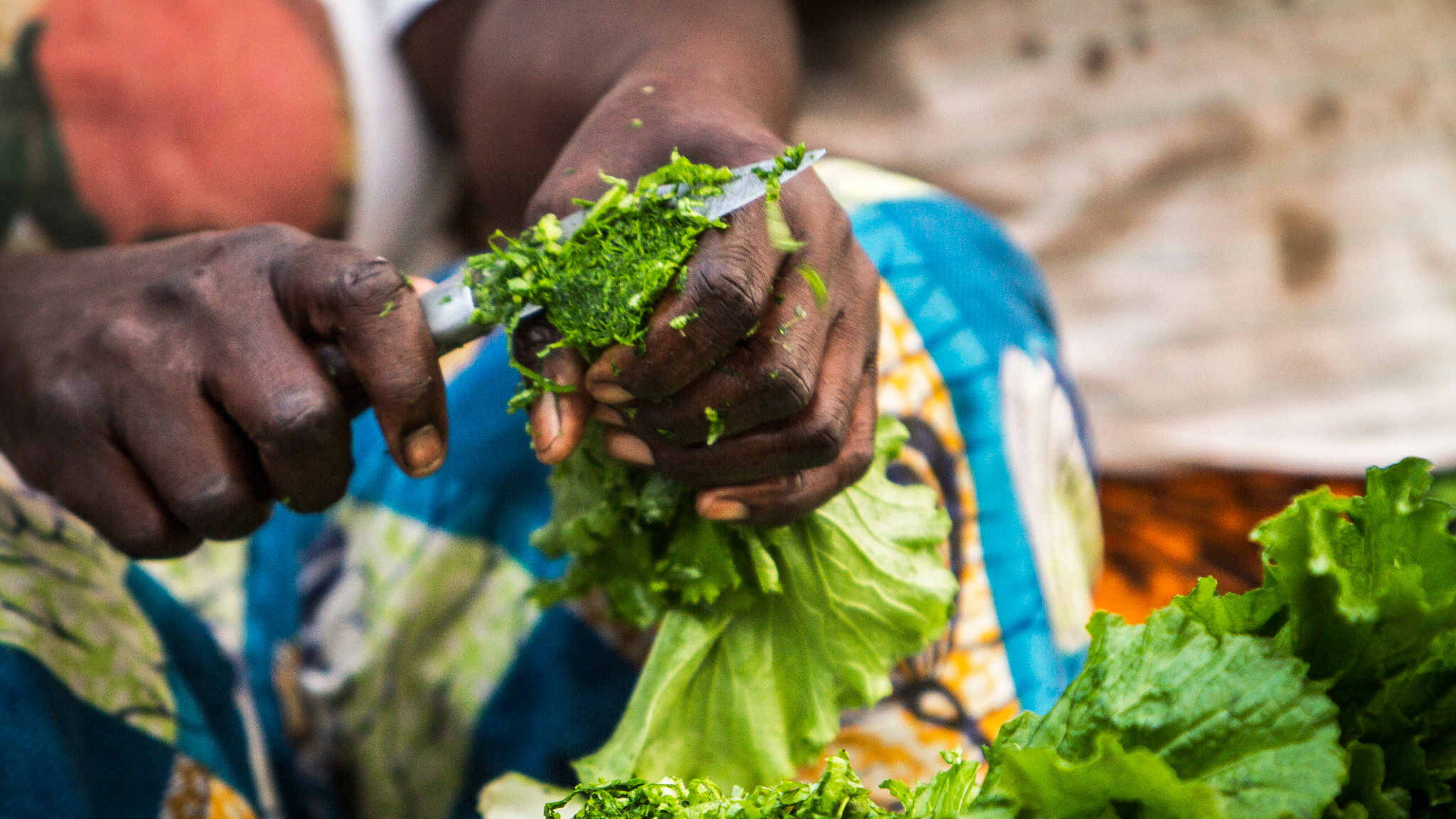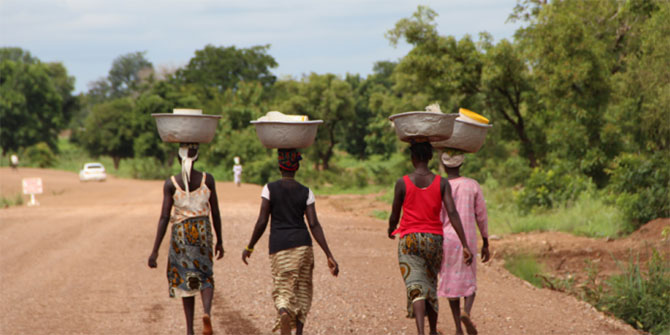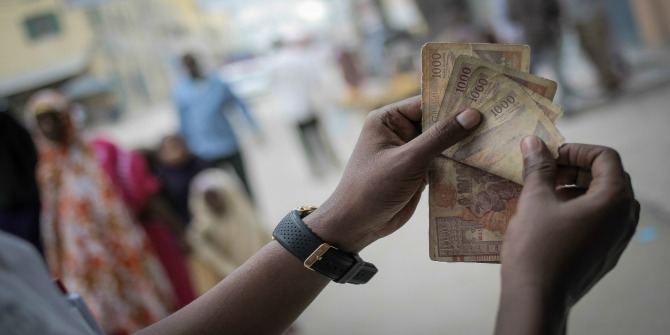Public health in Zimbabwe made world headlines early in 2019 following the catastrophic effects of Cyclone Idai. While the uneven return to normality highlighted socio-economic inequalities, a lack of investment in health infrastructure has long exacerbated, for many citizens, preventable diseases. To truly fight health inequalities, argues Craig Dube, we must stop the reliance on multilateral agencies and invest in health systems prior to ‘disasters’.
When Emmerson Mnangagwa’s government instituted cuts to essential services in pursuit of ‘business growth’ early in 2019, the impact on the health of Zimbabwean society and its people was swift. Fuel rose by 300%, a 90-cent loaf of bread soared to $3.50, doctors walked out in protest at a crippled healthcare system, and reprisals against public protests led to the government cautions for human rights violations by the UN Special Rapporteur on Extreme Poverty and Human Rights.
If you were to take a drive around Harare today – if you could find the fuel – you’d see that most inhabitants are in survival mode, standing in bread or fuel queues, or desperately attempting to retrieve hard currency from the few remittance services still in operation.
In a country beset by high levels of inequality, the truth in the Zimbabwean government’s claims that price hikes were ‘good for business’ is hard to see from the lowest rungs of the social ladder, where so many Zimbabweans live. It’s a place that offers scant shelter from shocks of any kind: when Cyclone Idai struck the South West Indian Ocean and nearby countries in March, the widespread loss of life among Zimbabwe’s poor subsistence farmers showed a natural disaster made worse by a lack of coordinated help for the displaced and injured.
Events such as this shine a spotlight on the inequalities that determine who lives and who dies, and who returns to their former livelihoods or is made destitute once the crisis period is over.
But not all disasters in Zimbabwe are as swift and unexpected as Idai. Cholera remains a significant public health concern. Deadly outbreaks have occurred almost yearly over the past decade, and often follow economic shocks such as the hyperinflation crisis of 2008. Lack of resources, inefficient health systems and a lack of investment in upgrading and installing new water and sanitation infrastructure have all combined to make the impact of the disease worse.
When the most recent cholera outbreak hit Zimbabwe in September 2018, it was clear that it had ceased to be simply a biological phenomenon. There was an urgent need to address the underlying socio-economic problems that, even more than contaminated water, are the ideal breeding ground for the disease. The challenge was far beyond the control of the country’s public health custodians; a more comprehensive strategy was urgently needed.
This year, that strategy moved closer to reality thanks to a US$60 million catalytic fund from the HigherLife Foundation. The Zimbabwean government asked HigherLife to coordinate a multi-stakeholder National Task Force on Cholera Control (NFTCC) through the Cholera Secretariat, which would serve as its main administrator, monitor and coordinator. It would bring together institutions that would not have otherwise self-organised, including government ministries, water and environmental bodies, and multinational organisations. During past epidemics there have been similar short-term set-ups, but with no long-term commitment to working together to ensure that these emergencies would not happen again in the future.
For people who, like me, are working in the social justice sphere, it is rarely difficult to identify the key forces in human-made or human-exacerbated health crises. In most cases, it is easy to see that problems in these institutions need to be tackled before any real transformation can happen. But it is harder to move past the question of who should pay for past disasters, and work with the institutions that will be responsible for responding to the challenges of the future. On my return to Zimbabwe this year, that is exactly what I have been doing.
Since my return, I have been observing the work of the Cholera Secretariat, which is in the process of drafting governance frameworks and a roadmap guided by its goal of eliminating cholera in Zimbabwe by 2028. It has identified what each of the NTFCC members have responsibility over, and will support each of them in the what, where and how of their cholera response. It has been an eye-opening experience to see how an organisation that has only been mandated to coordinate an NTFCC is, at the same time, doing so much to fight inequalities as well.
The 2018 cholera outbreak affected more than 10,000 Zimbabweans, with at least 55 deaths. Had there been a mitigation task force in place, the viral intensity of the outbreak would have been lessened. The Cholera Secretariat recognises that more needs to be done, and that if cholera is to be eliminated, the public health system must intensify initiatives against epidemic-prone diseases. One of the Secretariat’s key activities will be to support the Zimbabwean Ministry of Health to establish a public health Emergency Outbreak Centre. The EOC will ensure that there are preparedness strategies in place, allow for swift response to emergencies anywhere in the country, and implement mitigating strategies after an outbreak has occurred.
The Cholera Secretariat is also working with other implementing partners to coordinate behavioural change communication in five identified cholera hotspots in Harare, promoting community engagement around public health services and hygiene practices. It is widely known that tap water in Zimbabwe’s capital city has been unsafe to drink for some time, and in townships people have resorted to using boreholes to access safe water. What is less well known, however, is that most of these boreholes, because of their proximity to waste sewer, are full of harmful bacteria, and even though this water is much safer than tap water, purification is still necessary to make it fit for consumption.
On 25 May 2019, Africa Day commemorates 55 years of independence from colonial rule. It should be a source of shame, anger and concern that today will also be a day that people in Africa and elsewhere in the developing world will die of cholera and other water-borne diseases. Preventable and highly treatable, diseases like cholera and typhoid are spread by poor water and sanitation practices – and they have become the biological, and deadly, manifestations of endemic inequalities. If we truly care about fighting inequalities, we have to stop acting only when multilateral bodies come to our rescue, and instead work together to save lives long before emergencies hit. Zimbabwe’s Emergency Outbreak Centre, I believe, is a way of championing action through collaboration.
As long as one person dies because they have been systematically denied the resources enjoyed by their neighbour, then Africa is not truly emancipated. In the many African countries I have been to, I have seen people respond to hardships with incredible resilience. But we need to work to create a world that does not demand the impossible, because where public health is concerned, to quote Sir Michael Marmot, ‘What doesn’t kill us…makes us more vulnerable.’
Photo credit: European Union 2019, Christian Jepsen.





